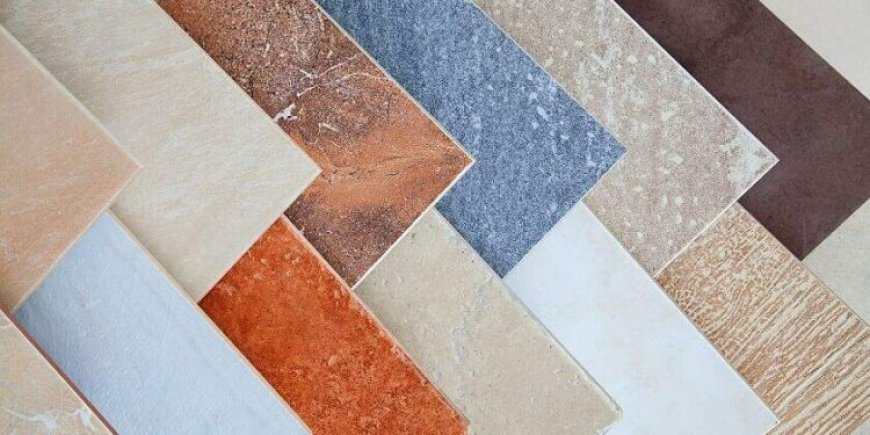Inside Nigeria tile industry where inflation is giving local tiles an edge

For Bright Emmanuel, the manager at De Zervant Ventures in Ikorodu, Lagos, selling tiles is more than just a business—it’s a lens through which he observes the broader economic realities facing Nigerians today.
“Prices don’t lie,” Emmanuel often remarks, “but tiles do.”
This expression encapsulates the challenges he navigates daily, where the fluctuating costs of tiles reflect the shifting priorities of consumers and the far-reaching impact of inflation on the construction industry.
As inflation tightens its grip on Nigeria’s economy, Emmanuel has noticed a significant shift in his customers’ purchasing patterns. What was once a straightforward decision based primarily on aesthetic preference has evolved into a complex balancing act involving cost, quality, and safety.
This transformation is not limited to tiles but is part of a broader trend across the building materials sector, where rising prices force both consumers and suppliers to make tough choices.
The impact of rising costs on building materials
The tile market is just one segment of Nigeria’s construction industry feeling the strain of inflation.
- According to recent data from the National Bureau of Statistics (NBS), the Furnishings & Household Equipment Maintenance inflation rate rose by 18.5% as of July 2024, marking the highest increase since May 1996.
- This surge reflects the broader inflationary pressures affecting everything from cement and steel to roofing materials and, of course, tiles.
- As costs rise across the board, the financial burden on builders and homeowners alike is becoming increasingly severe.
- In Lagos, a key hub for construction in Nigeria, this trend is particularly pronounced. Emmanuel’s experience at De Zervant Ventures mirrors the challenges facing the entire sector.
His customers, whether they are individual homeowners or large-scale contractors, are all feeling the pinch. Many are now reconsidering their choices, often opting for more affordable, locally-produced tiles instead of the premium imports from Italy and Spain that were once more common.
The complexities of Tile choices in Nigeria
Tiles have become an integral part of Nigeria’s building industry, not just as a design element, but as a crucial component of structural integrity and safety.
- Whether it’s a luxury mansion in Lekki or a modest bungalow in Ikorodu, the type of tiles used can significantly impact the look and feel of a space.
- More importantly, they determine how safe that space will be for its occupants, especially in homes with children and the elderly.
- In a market where inflation is pushing prices higher and consumer preferences are constantly evolving, the choice of tiles has never been more important.
- While Nigerian-made tiles are often the go-to for budget-conscious buyers, those with deeper pockets still prefer the durability and premium finish of Italian and Spanish imports.
Emmanuel has observed this shift firsthand at De Zervant Ventures, where customers now scrutinize every detail—size, material, origin—before making a purchase.
Tile prices surge year on year
To grasp the full picture of Nigeria’s tile market, it’s essential to consider the numbers.
- A survey conducted by Nairametrics in August 2024 offers a clear comparison of tile prices over the past year, revealing substantial increases across the board.
- For instance, a carton of 25×50 cm tiles, commonly used for exterior walls, has jumped from N3,000 in August 2023 to nearly double that at N5,800 in August 2024.
- Similarly, the 30×60 cm tiles, popular for both commercial and residential floors, now cost as much as N7,000 per carton, compared to N4,000 a year earlier.
These price hikes, while daunting, have not entirely dampened demand. Emmanuel notes that while some customers have switched to more affordable options, the essential role of tiles in building projects means they remain a non-negotiable purchase for most.
Inside Nigeria tile industry where inflation is giving local tiles an edge - Nairametrics









